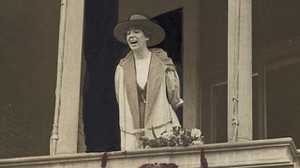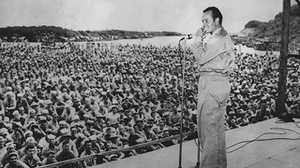Should the U.S. Police the World?
From the Collections: The Presidents | Leadership in times of crisisOccupying Iraq
Within weeks after the U.S. took Baghdad, Iraq ground to a halt and became a free-for-all, as homes and stores, museums, hospitals and electric plants were looted. "There was a decision to be lean and count on others showing up to secure the peace,” recalled chief of staff Andrew Card. “There was not as much discussion that I remember in the National Security Council about the process of organizing a government and identifying leaders."
From the film: George W. Bush
Bosnia
When Bosnian Serb soldiers murdered thousands in July 1995, Clinton initiated a massive NATO military response. "He didn't blink," National Security Coordinator Richard Clarke said. "We knew that day that we had a commander-in-chief who was rational and comfortable with the use of force."
From the film: Clinton
War in the Persian Gulf
H.W. Bush initiated a war in Iraq instead of imposing economic sanctions, drawing criticism from the American people and members of Congress.
From the film: George H.W. Bush
Aiding Freedom Fighters
In 1981, Reagan aided the Polish workers movement. "If Poland were freed, [he] felt all Eastern Europe would follow."
From the film: Reagan
Combatting Communism
In 1964, American bombers striking deep into North Vietnam demonstrated that Johnson was a committed anti-Communist.
From the film: LBJ
The Vietnam Question
Kennedy felt buildup of a military arsenal wasn't enough to show the United States would not cower to communism. So he decided to make a stand in a place few Americans at the time had ever heard of: Vietnam.
From the film: JFK
Hitler's Threat
In 1938, Roosevelt broadcast a personal appeal to Hitler, asking him to halt further aggression. In reply, Hitler ridiculed the president with withering sarcasm.







